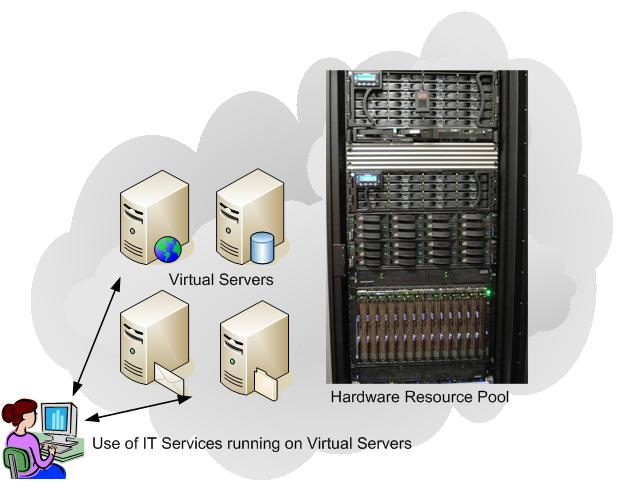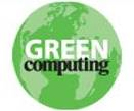Private Cloud of Department of Computer Science
Cloud Computing is a promising technology trend for the provisioning of IT services. Many datacenters have been moving towards the Cloud service model. The Computer Science Laboratory (CSLab) has started to build a departmental private Cloud in 2008. Most IT services of the Department of Computer Science (CS) are now supported by this internal Cloud. CS students and staff have already been enjoying the efficiency and flexibility of the Cloud in their learning and research activities.
Instant Response to Server Requests

In Cloud Computing, computers and data storages are put together to form a large and shared computing resource pool. Virtual Servers are created out of the resource pool dynamically upon request.
Most CS courses require back-end server supports in order to provide an application development environment for students’ works. Teaching staff and research students ask for servers from time to time for their research activities. Before employing the Cloud Computing service model, CSLab took months to acquire the required hardware. Set-up and installation normally took an additional week.
Today, a request for a server can be completed in minutes. If pre-installed Operation System (O/S) is required, a new server will be replicated from a template. The replication process normally takes less than an hour.
Resources on Demand
When a stand-alone server was purchased to serve an IT service request, it should be configured in its maximum capacity to guarantee peak-load performance. Very few servers ran at its peak load round the clock. As a result, computing power of many stand-alone servers was actually wasted.
One advantage of Cloud Computing is that virtual servers are dynamically scalable. Computing power and disk storage for a virtual server can be increased anytime when needed. At the start-up of a project, we can always assign minimal capacity to the virtual servers being requested. As the project grows towards its full production scale, computing power can be increased accordingly. In the old days, expanding an IT service’s capacity can take months in acquiring of new hardware, re-installation of every system components and migration of both data and application.
Energy Saving

Last but not the least, Cloud Computing is an environment friendly technology. It is by nature an immediate answer to the demand on Green Computing. Cloud Computing enables the sharing of computing resource. The optimized use of resource reduces the demands on rack space, power supply and cooling capacity.
Power consumption of the CSLab server room has been halved after migration to Cloud Computing. In anticipation of the growing demands, the capacity of our private Cloud has been doubled since its first deployment in 2008. As newly acquired hardware is much more powerful and compact, the required rack space and power supply remains the same.
Further Work
CSLab has just taken the first step on Cloud Computing. Services on schedule include individual virtual desktops and virtualized computing labs which allow both staff and students to work anywhere anytime on the Cloud.